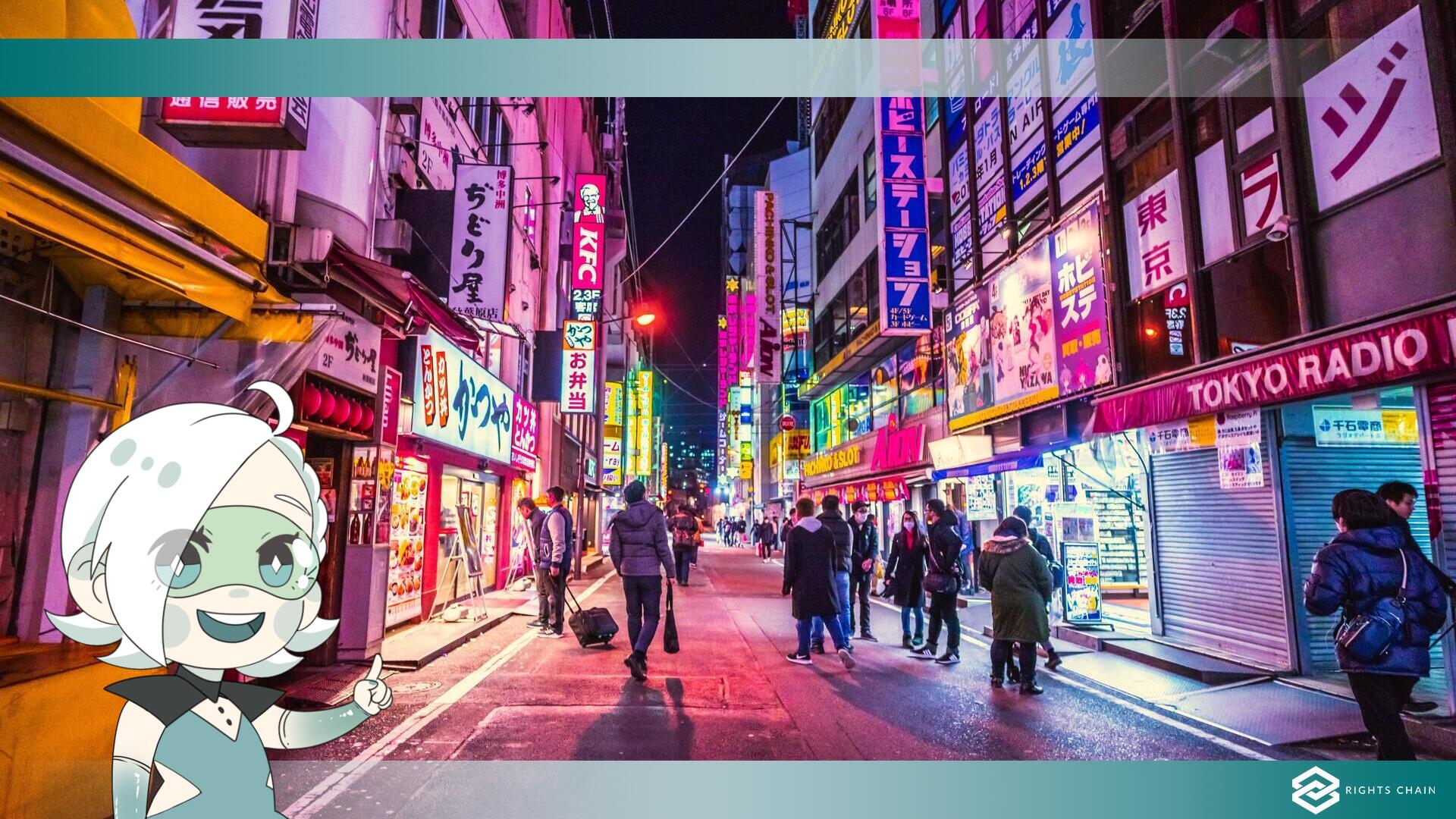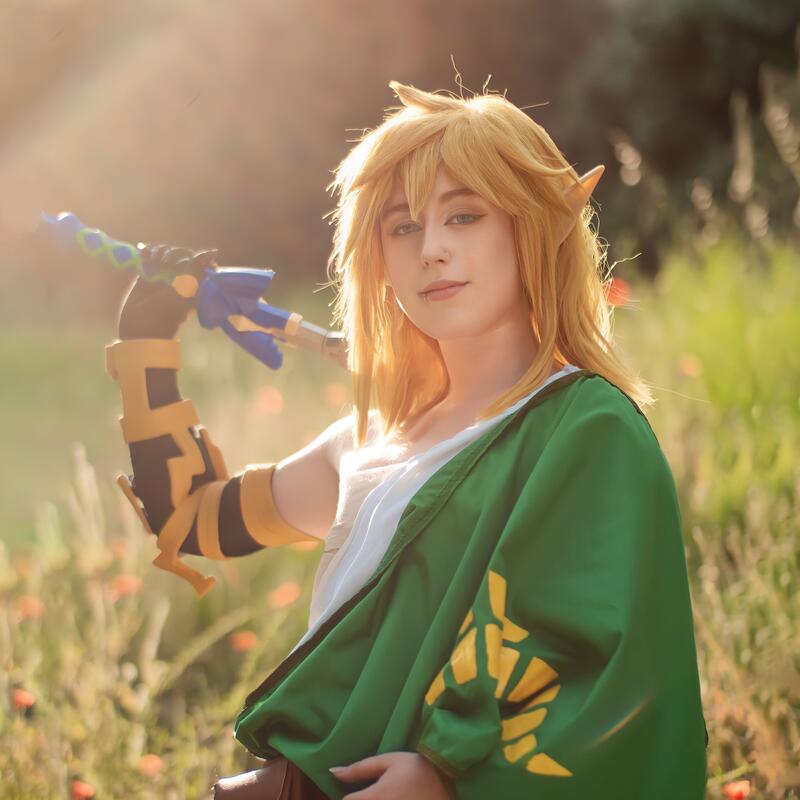Interview with @lsangelina - An Indonesian Artist living in Tokyo

- 2023-04-16
- Yako
- Creators
- Jezael Melgoza
YP: Tell us a bit about you and your work, your art style and medium: anything concerning your art that you believe to be of significance.
L: Hi! I’m Lou, an Indonesian artist now based in Tokyo! I mostly draw digitally using Adobe Photoshop and a wacom tablet, but sometimes I use acrylic paints, watercolours, and pencils for more traditional artworks. I have been drawing as a hobby for as long as I can remember and started to do full time freelancing in 2020. I’m taking a break from work at the moment to pursue my studies again.
YP: What prompted you to venture into the world of digital art? How did you start your artistic journey? Furthermore, how is the art scene viewed by the country you’re from, or currently living in?
L: For a really long time when I first started learning how to draw, digital art was one of the cheapest mediums I could have started with. My friends lent me their laptop and old wacom bamboo for me to play with and that was how I started drawing digitally.
My older sister was taking art as her extracurricular activity and I decided to follow her path. Some of my friends back in junior and highschool also did art with me, but in the end when everyone stopped drawing to pursue other things I kept drawing as a side hobby and tried to pursue a major related to art and drawing.
In my home country, Indonesia, art was not well received as a career until around a few years ago. Many simply didn’t see it as a ‘real’ job so it was pretty hard to get work unless you also did graphic design and/or something that relates more to advertising. Lately, art and illustration specifically have been getting better treatment as both are an actual career option in the eyes of people and also in the face of the law.
YP: If you feel comfortable doing so, please tell us something about your course of study. Did you study anything specific regarding art or was your interest born from elsewhere? How would you define your skill level currently?
L: I majored in Architecture and took special interest in Architecture History, I then quit architecture in 2020 to do art full time. At the beginning, I learnt art myself through local communities, youtube, and books in my free time while in university. I learnt art like I did science, understanding theories and properties behind it then applying it to my works. The theory behind light and colours and how they work is what piqued my interest in wanting to learn more about the subject.
I didn’t think I’d ever do it full time at first. The way I’d define my current skill level would be somewhere between advanced and professional.
YP: Art is most definitely a challenging, albeit extremely satisfactory activity to pursue. What impact has it had on your life so far?
L: Pursuing art, learning how to draw, trying to draw. Doing all those things again and again actually shaped my mindset on how I view and break down things. The constant thought of “will this colour work to draw this?” or “ah, so that’s how light shining through leaves looks like” whenever I’m going about my daily life actually makes me more observant of the little things.
Art makes me appreciate the little mundane things in life.
YP: Does your art enable you to support yourself economically? In case it doesn’t, is that something you’re striving for?
L: I’m very glad to say that before I took a complete break from art related work, it did support me economically. And I do wish that when I do pick it up again it could support me once more.
YP: What platforms do you use to promote your work? Do you think anything should be fixed about them or implemented differently? Do you believe that a new platform concerning solely digital art would be useful?
L: Pixiv, Twitter, Tumblr? I just started tumblr again.
I personally don’t think that there will ever be a perfect platform. Deviantart and Pixiv are both art specific platforms, yes, but I don’t think having a new platform could necessarily be a good thing either, with current trends on the internet and social media culture in general. After all, one person can only manage so many accounts.
YP: Have you ever had any problem regarding copyright and its management?
L: Yes, I do. The copyright law for each country is rightfully different: many internet spaces are based in the US or the EU, so obviously the copyright laws they follow are more US/EU centric; that obviously requires me to learn about foreign laws.
Furthermore, if by chance your artwork gets stolen by someone from a country whose laws you’re not familiar with, you’re not even sure if the laws you’re accustomed to could protect your work.
YP: Have you ever had any experience concerning stolen artworks? How did you face the situation? On the same wavelength, has anyone ever posted your artworks and pretended they were theirs? If you contacted them, were they cooperative or unresponsive?
L: I have some experiences concerning stolen artwork, yes. Most of the time when possible I tried to reach out to the reposter themselves to take it down or I just filled the DMCA (Digital Millennium Copyright Act) right away. Usually, rather than pretending the artwork was theirs, the reposter just said that they found it on google so it was “free to use for everyone, right?”
If it’s on social media platforms then I have a kind of easier time dealing with it because, thankfully, the DMCA claim works quite well. Nonetheless, there was a time when my work got used by a foreign news outlet and I couldn’t reach out to them because of the language barrier.
YP: What is your opinion about NFTs and their impact on the world regarding Digital Art? Are you in favour of AIs using your art to enrich their database?
L: As much as I don’t like NFTs, unfortunately I think they are here to stay. On one hand I’m glad that artists have another way to make money out of their works, but on the other hand the way NFTs are used and practised is not really helping artists as much as it claims to be.
NFTs showed many people that are not involved in art related industries that art could make them money, consequently many people are now trying to make a quick buck through NFTs, reaching a point of such desperation that they’d do anything, even stealing artworks.
AI as well. Personally I feel like, if used correctly, AI could be a great tool to help artists, but I can’t say I agree with how the AI database is created. I’m not in favour of AIs using my art to enrich their database: there are so many other ways for AIs to learn, and using the art of still living, practising artists is no different than stealing art, in my opinion.
YP: What would you change about the current art scene in the world if you could? What do you expect from the future of art?
L: I wish the deep cultural problem regarding how our work is asked for, yet not respected as labour and not given its due price could get better, especially in many developing countries in South East Asia. The wage and cost differences between US/EU and SEA are of course very different and create a wage gap, consequently I wish there could be more transparency between US/EU based clients towards the SEA or other countries they are hiring overseas.
I wish pursuing art as a career would be possible and attainable by anyone, right now and in the future as well. Obviously not only as a career but also as a hobby. Art is supposed to be fun and I wish for people who decide to pursue art seriously to still get the support they need from the community around them.
With the fast development of technology around us, I hope that many new technologies can assist us and create a better environment for artists to grow and find themselves. Helping creators be the creators they want to be.
Many thanks to Lou for participating in the interview! We hope you enjoyed it and we remind you that you can admire the artist's works on their Twitter profile - @lsangelina14.
